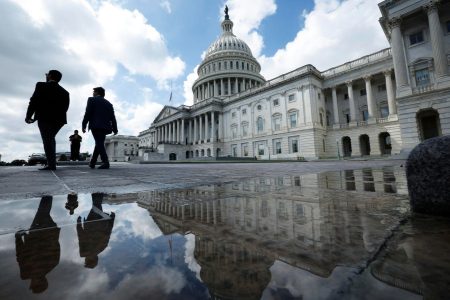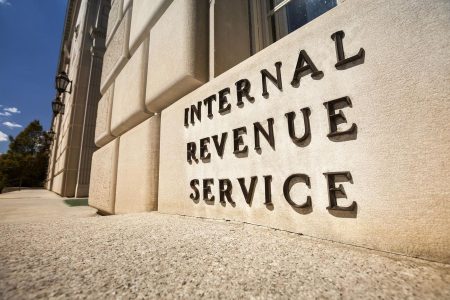This is a published version of our weekly Forbes Tax Breaks newsletter. You can sign-up to get Tax Breaks in your inbox here.
It’s the opening weekend of the Paris 2024 Olympic Games—and that means we’ll be watching the best athletes in the world compete (sorry, I just got goosebumps).
I have always loved watching the Olympics. I make no apologies. I love all of it—from the opening ceremonies to the lovefest that is the closing ceremonies. When I was a kid, my brothers and I used to recreate some of the competitions in our front yards (I was very good at walking the tree log, I mean, beam). My kids did the same thing, reenacting almost every Olympic sport featured—including fencing and archery—inside my living room. It’s a chance for all of us to appreciate trying to be the best at something, no matter where you’re from.
The Olympics are also a fantastic opportunity to see some of the most beautiful places in the world. This year, events will be held not only in Paris, but also in Lyon, Marseilles, Nice, Versailles, and Tahiti (for surfing)—all perfect spots to visit and perhaps even retire.
As we become an increasingly global society, more Americans are looking to move abroad. If you’re looking for recommendations, Forbes has you covered. Our list of the top 24 countries and 96 recommended spots is based on costs, amenities, healthcare, climate risk, language, crime, and whether they welcome U.S. retirees. (Spoiler alert: Paris, France is on the list.)
Before you book your tickets, here are some of the key factors to consider, including affordability, taxes, medical insurance, and residence requirements.
(If you are thinking of moving, retiring, or just seeing the world, it’s also a good time to have a conversation about your estate planning.)
One city that didn’t make the list? Singapore (though I can attest that it’s an amazing place to visit). Singapore has, however, been in the news lately as the country recovers from its largest money laundering scandal ever—a $3 billion SGD (about $2.2 billion U.S.) caper that has rocked its reputation. The story started over a decade ago in the Philippines, where a group of 10 fraudsters ran an illegal offshore gambling operation targeting Chinese gamblers. The fraudulent casino operators stashed their cash in Singapore, where they routed their ill-gotten gains through cryptocurrencies, gold, luxury cars, and real estate.
Authorities still don’t know the true scope of illicit cryptocurrency activity. The U.N. has noted that cryptocurrency-related activity conducted by organized crime groups is “vastly underestimated”—the same has been said for cryptocurrency tax compliance. That’s one of the reasons that the U.S. is ramping up reporting requirements. Earlier this summer, the IRS released final regulations (☆) for sales, exchanges, transfers, and payment processing of digital assets. The final regulations incorporated many comments and recommendations submitted by industry leaders—and raised questions about what comes next.
The IRS also surprised tax experts by issuing a new version of its stock compensation auditing guide, which had not been updated since 2015. Developed as an internal manual for IRS employees, it offers businesses a helpful window into what IRS agents examine in audits related to equity compensation. It’s a heads-up on stock options, restricted stock, restricted stock units (RSUs), stock appreciation rights (SARs), phantom stock, and employee stock purchase plans (ESPPs) for anyone who has these benefits or advises clients with them.
Looking for more guidance? An IRS announcement from 2021—updated this year—confirms that the agency’s FAQs generally cannot be relied upon and goes on to describe the authority that can be relied upon. You may have seen some references to this issue before, but unfortunately, many taxpayers and professionals don’t know about it.
There’s one more thing: despite the fact that I enjoy archery (more on that below), I occasionally miss the mark. In last week’s newsletter, I inadvertently made a mistake when trying to condense a lot of information into a quick summary. When writing about the final regulations for inherited IRAs (☆), I failed to make a timing distinction: In the final regulations, the IRS confirmed that distributions which began before 2020 originally subject to the five year rule remain subject to the five year rule (they do not stretch). My apologies for the error, and many thanks to Eddie Romaguera, CPA, who caught my mistake. (I always read and appreciate feedback!)
Enjoy the Games!
Kelly Phillips Erb (Senior Writer, Tax)
Articles marked with (☆) are premium content and require you to log-in with your Forbes membership credentials. Not a subscriber yet? Click here to sign up.
Taxes From A To Z: I Is For Interest Rates
You likely already know about interest—the charge for using borrowed money—but interest rates can have a significant impact on taxpayers.
The IRS charges you interest when you don’t pay on time, but the agency also may owe you interest if it doesn’t pay your refund on time. The IRS generally has 45 days to pay a tax refund before the law requires the tacking on of interest (assuming there are no problems with your return).
Interest rates change each quarter. For the calendar quarter beginning July 1, 2024, for individuals, the rate for overpayments and underpayments will be 8% per year, compounded daily. For taxpayers other than corporations, the overpayment and underpayment rate is the federal short-term rate plus three percentage points.
The interest rates are computed from the federal short-term rate. You’ll find more info in Revenue Ruling 2024-11.
Statistics
The opening ceremony of the 2024 Paris Summer Olympics kicked off on Friday when more than 10,000 Olympic athletes cruised on more than 90 boats through the Seine River, passing by the Notre Dame, the Louvre, and the Eiffel Tower. No matter where the athletes come from—or how they arrive—they are all aiming for the same prize: Olympic gold.The U.S. team has high expectations. From Simone Biles to Suni Lee, and Breanna Stewart to Diana Taurasi, American athletes expect to bring home some serious bling—more than any other country.
Fortunately for many athletes, medals or prizes awarded during the Olympic and Paralympic games are tax-exempt. (☆) That hasn’t always been the case (the new law didn’t pass until 2016). The “Olympics exemption” means that Olympic and Paralympic athlete winnings are excluded from federal income tax—with a big exception. Athletes with adjusted gross income (AGI) of $1 million or more ($500,000 for those married individuals filing separately) don’t qualify for the exemption.
(You can see Forbes‘ list of the highest-paid athletes at the Paris Olympics here.) (☆)
Athletes who are above the threshold must report and pay tax on their winnings, including the cost of the medal and any associated prize money.
Questions
This week, a reader asks:A friend who is a business owner has a problem and needs to fill out a Form W-9. Can I use my EIN number to help him?
I appreciate the sentiment but the answer is no. Your EIN—or employer identification number (EIN)—is like your Social Security Number. It’s specific to the taxpayer and shouldn’t ever be borrowed, shared, or transferred.
Not only will you cause confusion, but you could land yourself in trouble. Notably, on Form W-9, you sign under penalty of perjury, confirming that “[t]he number shown on this form is my correct taxpayer identification number.”
A taxpayer can generally get an EIN quickly—and for free—online at IRS.gov. Some exceptions apply, including for those taxpayers for which the responsible party is a foreign person who does not have an SSN or ITIN—they will not be able to use the online application portal.
It’s a timely question, though, since FinCEN recently updated its guidance for beneficial ownership information reporting—including new FAQ information posted as of July 24, 2024. That guidance includes what to do if you don’t have an EIN by the due date for BOI report filing. In that instance, FinCEN says, in addition to making all reasonable efforts to file on time (including requesting all necessary information as early as practicable), file the report as soon as it receives its EIN. As a best practice, consider retaining documentation associated with its efforts to comply in a timely manner. (☆)
—
Do you have a tax question or matter that you think we should cover in the next newsletter? We’d love to help if we can. Check out our guidelines and submit a question here.
A Deeper Dive
This week, a federal judge in Pennsylvania declined to issue an injunction that would effectively block the Federal Trade Commission’s (FTC) ban on noncompete agreements. (☆) The ruling came in response to a case filed by ATS Tree Services, based in Bucks County, Pennsylvania, which challenged the FTC’s efforts to ban noncompete agreements. ATS uses noncompete agreements to protect the investment it makes in its employees’ training, it explains, which gives it some confidence that it is not investing in an employee it will immediately lose to a competitor.
Judge Kelley Brisbon Hodge ruled that ATS “failed to establish irreparable harm,” writing, “On that finding alone, the Court must deny Plaintiff’s Motion.” Judge Hodge went on to say, “Nevertheless, the Court analyzes likelihood of success on the merits as the Parties presented extensive argument on this issue,” finding that ATS “failed to establish “a reasonable chance, or probability, of winning.” A similar case is pending in a Texas court, which has stated that it will issue its decision by August 30, 2024—likely setting up a showdown in the Supreme Court.
The Supreme Court has seen its share of tax cases these days—like Moore (whether the Sixteenth Amendment authorizes Congress to tax unrealized sums without apportionment among the states) and Connelly (whether the company’s contractual obligation to redeem a deceased taxpayer’s shares at fair market value offsets the value of life insurance proceeds committed to funding that redemption). (☆) The most recent episode of Tax Notes Talk focuses on the recent Supreme Court decisions overturning Chevron and defining the statute of limitations period and their potential impact on the future of tax litigation. Transcript available.
Tax Filings And Deadlines
📅 July 31, 2024. Due date for individuals and businesses in parts of Massachusetts affected by severe storms and flooding that began on September 11, 2023. More info here.
📅 September 16, 2024. Third quarter estimated payments due for individuals and corporations.
📅 September 16, 2024. Due date for 2023 calendar year partnership returns (Forms 1065) and S corporations (Forms 1120-S) filed on extension.
📅 February 3, 2025. Due date for individuals and businesses in parts of Texas affected by Hurricane Beryl. More info here. (☆)
Tax Conferences And Events
📅 July-September, 2024. IRS has announced the continuing education (CE) agenda for the 2024 Nationwide Tax Forum. Attendees can earn up to 19 CE credits over three days by attending one of the five forums in Chicago (July 9-11), Orlando (July 30-August 1), Baltimore (August 13-15), Dallas (August 20-22), or San Diego (September 10-12). Registration required.
📅 September 23-27, 2024. ABA Section of Taxation Virtual 2024 Fall Tax Meeting. Registration required.
Noteworthy
Wiggam Law announced the addition of John H. Kirbo as a senior attorney specializing in tax controversies and resolution. Kirbo brings extensive experience in Federal District Court and tax litigation.
Pillsbury has added Lawrence (Larry) Sannicandro to its tax controversy and private wealth practices. Sannicandro focuses his practice on federal and state tax controversies, including representing clients in audits, administrative appeals, collection matters, summons proceedings, criminal tax investigations and prosecutions, and litigation in the U.S. Tax Court, federal district and appellate courts, and state tax tribunals.
Nelson Mullins Riley & Scarborough LLP, a national law firm, welcomed Michelle Yarbrough Korb as a partner on the Affordable Housing and Tax Credits team in the firm’s Pittsburgh, Pennsylvania office.
Clark Hill has announced that Mark Auten has joined the firm as a Tax & Estate Planning Member in its Collin County office. Auten primarily assists business owners with pre-exit planning strategies and provides individuals with foundational estate planning guidance.Avalara, Inc., a provider of tax compliance automation software for businesses, announced a strategic alliance with KPMG LLP, an audit, tax, and advisory firm. The new alliance allows organizations to leverage the combined power of Avalara’s compliance automation technology and KPMG’s expertise in tax consulting and advisory services.
—
If you have career or industry news, submit it for consideration here.
Trivia
Which city is the first and only chosen host city to reject the opportunity to host the Olympics after voters passed a referendum refusing additional public spending?
(Hint: It’s in the United States.)
A. Chicago
B. Dallas
C. Denver
D. New York City
Find the answer at the bottom of this newsletter.
In Case You Missed It
Here’s what readers clicked through most often last week:
You can find the entire newsletter here.
Our Team
I hope you’ll get to know some of our staff and contributors. This week, I asked our team: If you had the opportunity to compete in any event at the Summer Olympics, what would you choose?
Kelly Phillips Erb (Senior Writer, Tax): I have been fascinated by archery forever—and even took it in college (there are likely many, many arrows littered on Wade Avenue in Raleigh as a result). It’s great fun and I think it would be amazing.
Tina Russo (Senior Editor, Money): If it wasn’t for my fear of heights and dislike of bathing suits, I’d say platform diving.
Brandon Kochkodin (Writer, Money Team): Surfing sounds fun.
Veronica Irwin (Intern, Money Team): Basic, but gymnastics.
Amber Gray-Fenner (Contributor, Tax): Shooting.
David Rae (Contributor, Personal Finanace): I’d love to be able to do gymnastics.
Virginia La Torre Jeker (Contributor, Tax): A younger me would say gymnastics as I was captain of our team in high school. The older me would say swimming because I swim a mile a day and it has kept me going strong.
Andrew Leahey (Contributor, Tax): I think I’d have to go with archery. While I have no doubt it is fully a sport and absolutely chockablock with deeply talented individuals, it feels like the event a goofball would have the best (still very slim) chance of stumbling into success in, Mr. Bean style.
Ashley Case (Contributor, Tax): Sport climbing is about as close as I could get to hiking. I’ve been to a rock gym, however, and I’m confident that I wouldn’t stand a chance!
In Case You Missed It
Here’s what readers clicked through most often last week:
You can find the entire newsletter here.
Trivia Answer
The answer is (C) Denver.
In 1970, Denver was awarded the opportunity to host the 1976 Olympic Games. But in 1972, the Denver Olympic Organizing Committee (DOOC) notified the Olympic committee that the city would be unable to host the games due to a lack of money. A November 7, 1972, referendum resulted in Colorado residents voting 537,400 to 358,906 to block additional state funding for the Olympics.
(The games would go on to be hosted in Innsbruck, Austria.)
Feedback
How did we do? We’d love your feedback. If you have a suggestion for making the newsletter better, let us know.
Read the full article here










